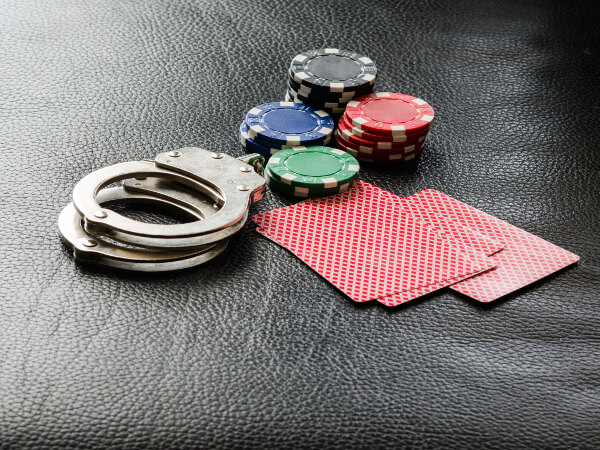Free Gambling Counselling
Being a compulsive gambler can harm your health and relationships, and leave you in serious debt.

2 days ago This can be a difficult time of year for those affected by Gambling Harm, we all hope you have a good Christ. Www.linkedin.com Reply on Twitter 706659331 Retweet on Twitter 706659331 Like on Twitter 706659331 2 Twitter 706659331. Gambling addiction—also known as pathological gambling, compulsive gambling or gambling disorder—is an impulse-control disorder. If you’re a compulsive gambler, you can’t control the impulse to gamble, even when it has negative consequences for you or your loved ones. Gamcare has an on-line forum especially designed for family and friends and also provides free counselling services to help them cope. Gamcare can advise on:-how to support a partner, friend or family member; getting help with debt; other services available locally. For further information, see the Gamcare website. Gambling and debt. Gambling CEUs and Related CEU Courses View all Course Content FREE! Take & Score Test FREE! Some course Sections below have been selected for presentation in Power Point format for Staff training and Client Information.
If you have a problem with gambling and you'd like to stop, support and treatment is available.
Are you a problem gambler?
Try this questionnaire:
- Do you bet more than you can afford to lose?
- Do you need to gamble with larger amounts of money to get the same feeling?
- Have you tried to win back money you have lost (chasing losses)?
- Have you borrowed money or sold anything to get money to gamble?
- Have you wondered whether you have a problem with gambling?
- Has your gambling caused you any health problems, including feelings of stress or anxiety?
- Have other people criticised your betting or told you that you had a gambling problem (regardless of whether or not you thought it was true)?
- Has your gambling caused any financial problems for you or your household?
- Have you ever felt guilty about the way you gamble or what happens when you gamble?
Score 0 for each time you answer 'never'
Score 1 for each time you answer 'sometimes'
Score 2 for each time you answer 'most of the time'
Score 3 for each time you answer 'almost always'
If your total score is 8 or higher, you may be a problem gambler.
Help for problem gamblers
There's evidence that gambling can be successfully treated in the same way as other addictions. Cognitive behavioural therapy usually has the best results.

Treatment and support groups are available for people who want to stop gambling:
GamCareGamCare offers free information, support and counselling for problem gamblers in the UK.
It runs the National Gambling Helpline (0808 8020 133) and also offers face-to-face counselling.
National Problem Gambling Clinic If you live in England or Wales, are aged 13 or over and have complex problems related to gambling, you can refer yourself to this specialist NHS clinic for problem gamblers.

See if you meet the criteria for this service.
Gordon Moody Association The Gordon Moody Association offers residential courses for men and women who have problems with gambling – email help@gordonmoody.org.uk or call 01384 241292 to find out more.
It also runs the Gambling Therapy website, which offers online support to problem gamblers and their friends and family.
Gamblers Anonymous UKGamblers Anonymous UK runs local support groups that use the same 12-step approach to recovery from addiction as Alcoholics Anonymous. There are also GamAnon support groups for friends and family.
Self-help tips for problem gamblers
Do:
- pay important bills, such as your mortgage, on payday before you gamble
- spend more time with family and friends who don't gamble
- deal with your debts rather than ignoring them – visit the National Debtline for tips
Don't:
- view gambling as a way to make money – try to see it as entertainment instead
- bottle up your worries about your gambling – talk to someone
- take credit cards with you when you go gambling
For more self-help tips, see the Royal College of Psychiatrists website.
If you're affected by someone's gambling
If you're having problems because of another person's gambling, it's best to be honest with them about it. They need to know how their behaviour is affecting you.
Support is also available to people who are worried about someone else's gambling:
GamCare Gamcare offers support and information for partners, friends and family of people who gamble compulsively.
GamAnon
Local support groups for anyone affected by someone else's gambling problem – find your nearest group.
Real stories of recovery from gambling
Tell your own story and post messages of support in the GamCare recovery diaries forum.
Page last reviewed: 31 December 2017
Next review due: 31 December 2020
Support Groups
Do you want to talk to others who are in a similar position to you? Are you looking for advice, support and information from people who have been free from gambling for many years? Why not try our online peer support groups
Showing the next 3 groups on Friday 1st January 2021
Full list of groupsVisit our forums
Read and interact with other people who are struggling with gambling issues
Visit forumEmail Us
Email our team of volunteers and counsellors

Self Help
Download our worksheets and Kickstart your Recovery
Self Help ToolsWho we are
Find out more about Gambling Therapy and the ways in which we can support you
Learn more about usThe Cycle of Addiction
Find out about the gambling cycle of addiction
Gambling infoThe GT App
Download the GT App
Read MoreService Evaluation
How Did We Do?
Free Online Gambling Counselling
Please Tell Us!The Stay Alive App
A free suicide prevention source